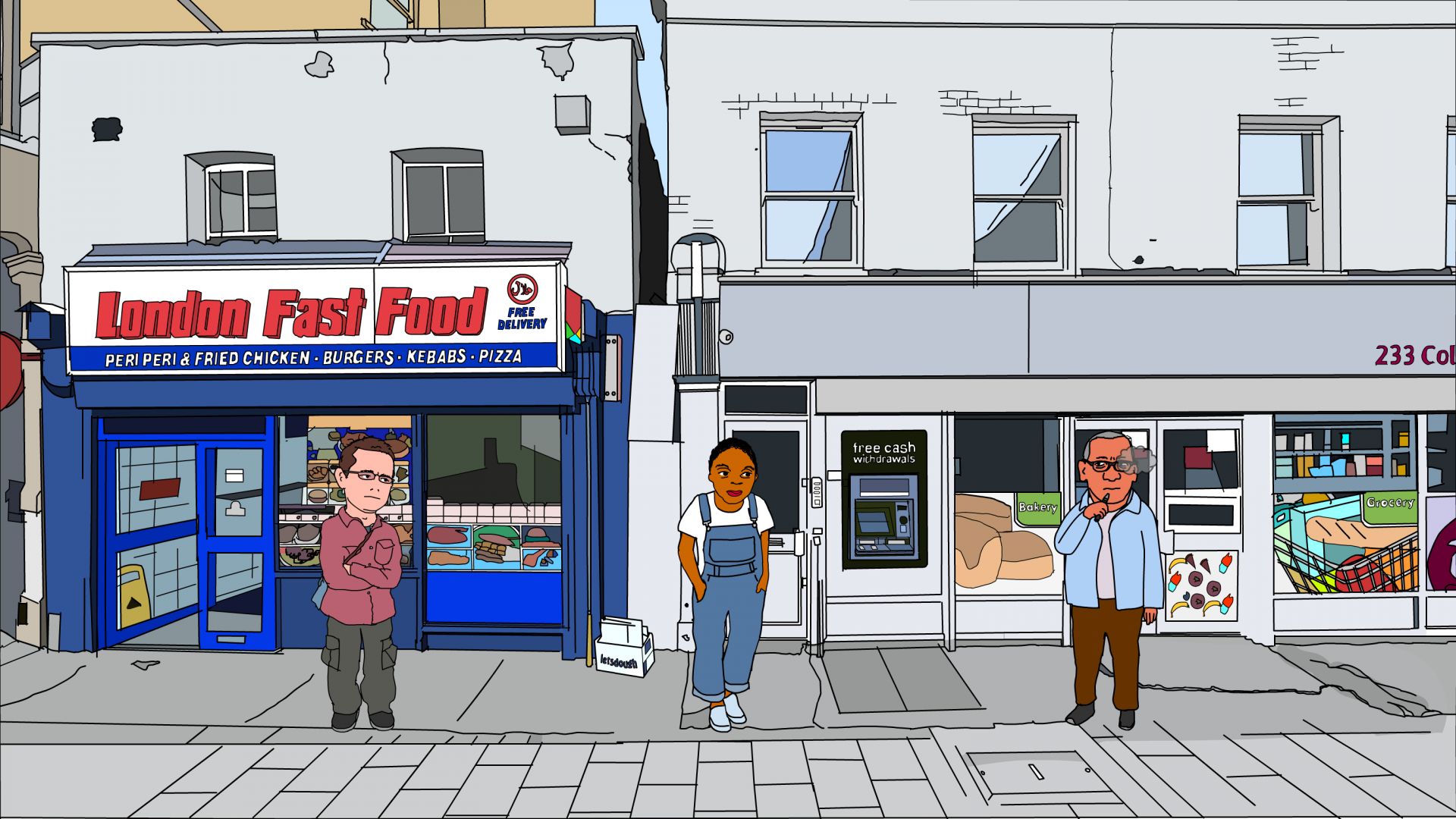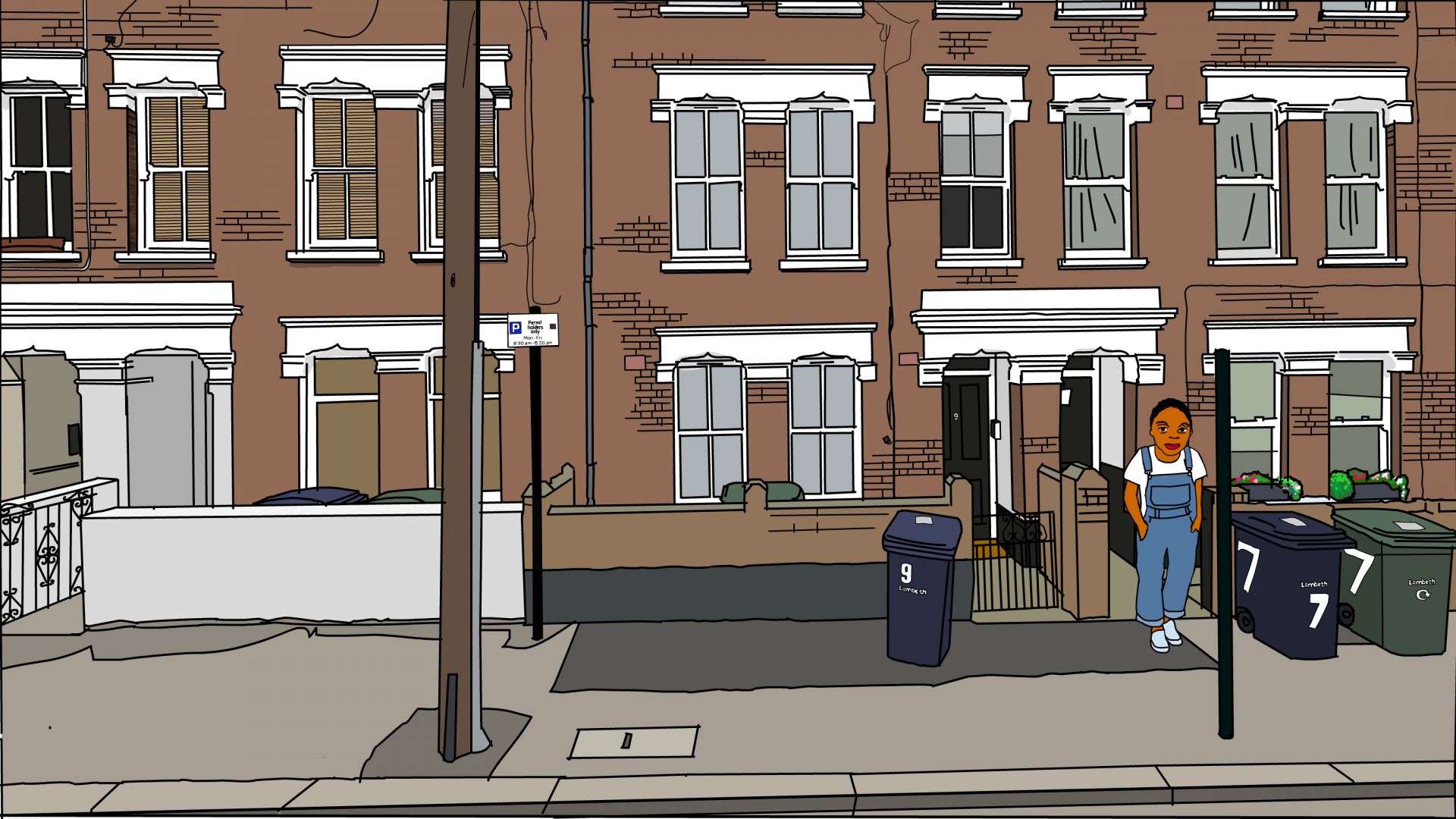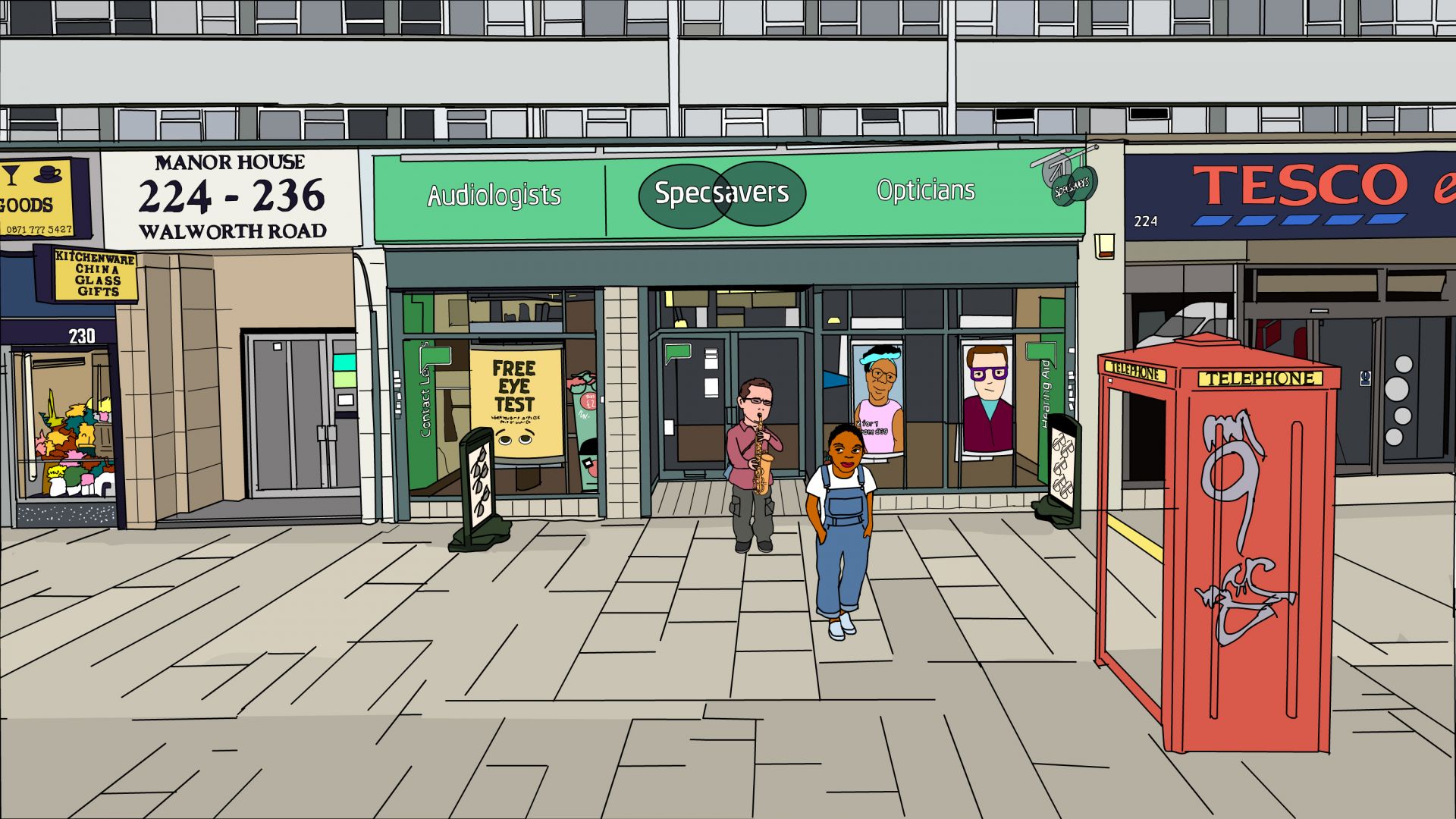Janette PARRIS
Catching Up
Janette PARRIS
Catching Up, 2020
(still)
animation, 5’51’
Courtesy of the artist
Still: © Janette PARRIS
Janette Parris’s work explores the most ordinary topics in seemingly ordinary ways. The Bite Yer Tongue series presents episodes from the artist’s life in the form of short, text-based drawings. Parris presents these mini-narratives in the first person singular; as in literary fiction, the viewer is left to imagine the details of the story (the locations, the characters, the circumstances, the emotions) based on the available textual information. The drawings go beyond the traditional opposition of image and word by presenting the text’s role in visuality, serving to convey the experience, as something self-evident. In the stories told by Parris in the first person singular, as a recurrent motif, the narrator attempts to attenuate the unpleasantness and awkwardness, the angering and sometimes humiliating outcomes of the situations and relieve the tension within herself by consuming comfort food, but the repetition of the motif suggests that this release can only be temporary. Paradoxically, however, by revealing these instances to us and placing us in the performative position of witnesses who listen to the traumatic experience, she also opens up the possibility of trauma processing. The series proves that Parris is able to look at these stories as resources and transform these situations into works of art. In Catching Up, a short animation with music, the artist places an equally familiar urban situation in the present-day pandemic era. Acquaintances (including the artist herself or her alter ego) bump into each other on the street and catch up, talking about the rough patches their creative careers have hit and how they are coping with the challenges of the home office. Parris collected the elements of the dialogues from her personal acquaintances and broader environment. The material pitfalls of the freelance artist’s life were only aggravated by the lockdowns associated with the pandemic, which is a source of prolonged internal tensions that are even more difficult to resolve in today’s success-oriented society. Both of Parris’ works expose this issue with disturbing honesty.
TIMÁR Katalin


